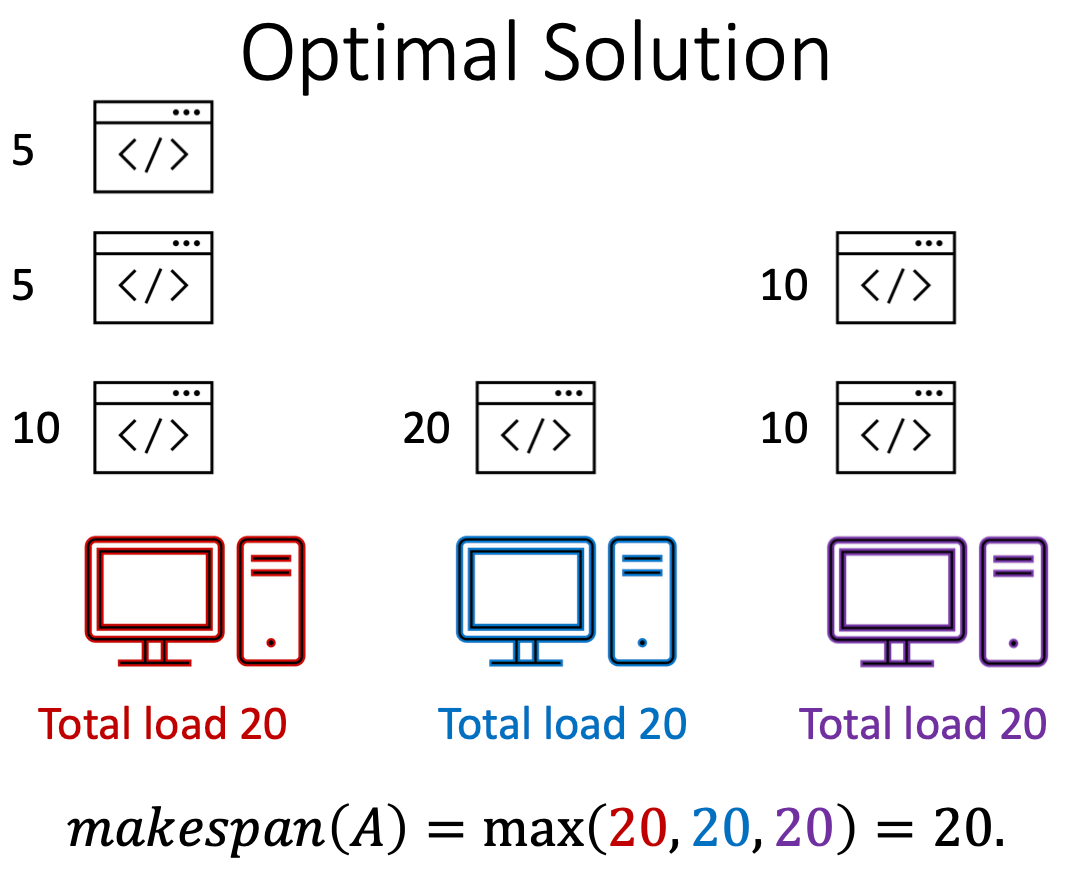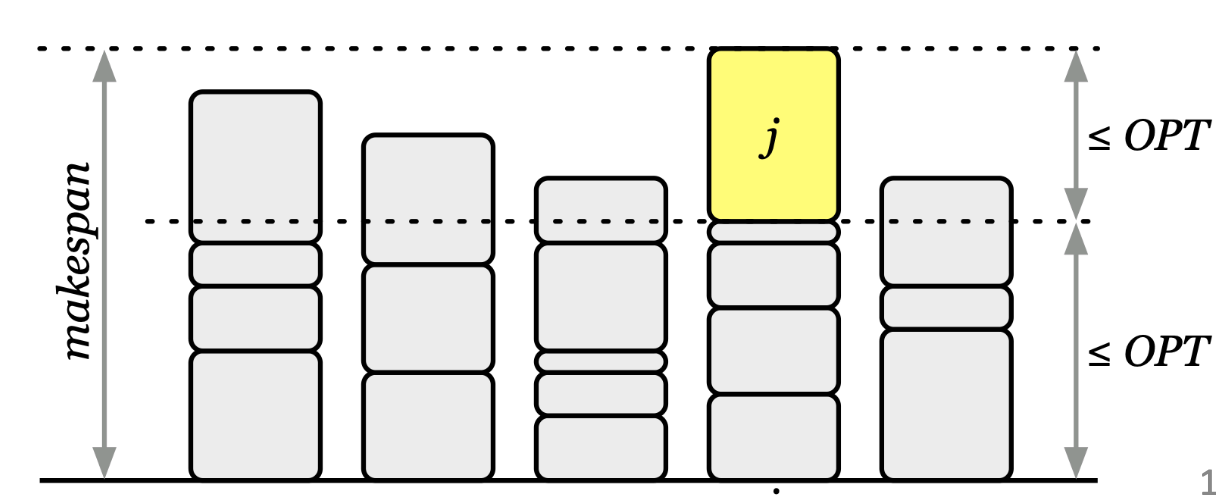Scheduling problem solution formulations
- Sort by some quantity
- Schedule accordingly
- Prove correctness by these strategies
Event Scheduling
Q. Interval Scheduling (Greedy Algorithm)
- Dynamic Programming idea works
dp[i] = max(dp[]+1- time
- Greedy Algorithm is even better
- Idea: sort by
alg. Interval Scheduling with rooms
Q. Multiple Room Interval Scheduling
Q. Interval Coloring
Q. Interval Cover Problem
Job Scheduling
Q. Minimize Makespan (=maximum time on any machine) of machines

- NP-Hard problem (reduce from -Subset Sum)
alg. Approximate Greedy Makespan: Always choose the least loaded machine
- Is a 2-level approximation
 alg. Better Approximate Greedy Makespan: Assign from longest to shortest job, to least loaded machine every time.
alg. Better Approximate Greedy Makespan: Assign from longest to shortest job, to least loaded machine every time.
alg. Minimize lateness of jobs
-
Interval Scheduling
- schedule jobs
- no dependencies
- => how many jobs can you complete? (total time doesn’t matter!)
- conflict when:
- Start[i] <
- Dynamic Programming solution is easy
- OPT = max(1+OPT(jobs that don’t conflict with job 1) vs OPT(2..n))
- => but or even with improvement !
- schedule jobs
-
Greedy solution:
- job that finishes first = job that leaves the most amount of remaining time
- implementation
- Sort by finish time
- choose earlyest finish time
- choose next earliest finish time that doesn’t conflict with most recently finished job
- Done!
- => time (because sorting)!
- Proof by induction: Exchange Argument
- base: optimal solution has
- if you have that finish time earlier than …
- removing and adding is also optimal solution
- base: optimal solution has
-
Try: dp solution
-
variation: make span algorithm (greedy is close to optimal, but not optimal)
-
interval scheduling, but with meeting rooms
- greedy still words!
-
minimum total completion time.
-
minimize lateness
- sort by ascending lateness<<